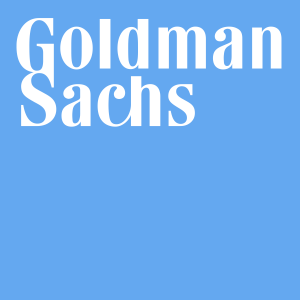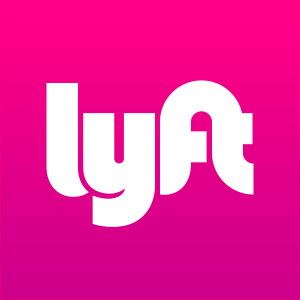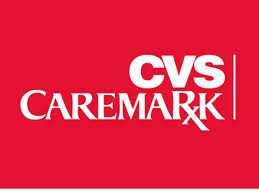 Top Class Action Lawsuits
Top Class Action Lawsuits
Did they not get the memo? Goldman Sachs Group (GSG) Inc, got hit with a discrimination class action lawsuit filed by a black female banker working in GSG’s personal wealth management unit. Specifically, plaintiff Rebecca Allen alleges GSG steered top clients to her Caucasian colleagues and denied her promotions because of her race. Seriously?
Allen states in the Goldman Sachs discrimination lawsuit that Goldman’s senior leadership team is virtually all-white and favors white bankers for promotions and lucrative accounts, resulting in their earning more than their black colleagues.
“Simply put, Goldman Sachs does virtually nothing to hire, promote or develop black talent, instead focusing its efforts on retaining and promoting white employees to positions of leadership,” the complaint states.
Allen was hired by GSG in 2012. According to the complaint, in 2016 she was removed from an account she had worked on for three years by a Goldman partner, Christina Minnis, who is also named as a defendant in the lawsuit. Allen says her supervisor met with Minnis about the decision and said she made racist and anti-Semitic comments about Allen, who is also Jewish.
Well, that about covers all the bases. See you in court!
The case is Allen v. Goldman Sachs Group Inc, U.S. District Court for the Southern District of New York, No. 1:17-cv-06195.
Top Settlements
Big award for talcum powder cancer lawsuit … California just handed down a $417 million verdict to the plaintiff who claimed she developed terminal ovarian cancer after using the company’s talc-based products such as Johnson’s Baby Powder. The talc cancer case is the first to be heard in California against Johnson & Johnson (J&J). It is brought by California resident Eva Echeverria who alleges the company failed to provide adequate warning about the risk for cancer linked to the use of its talc-based products.
The Los Angeles Superior Court jury found in favor of Echeverria, awarding $70 million in compensatory damages and $347 million in punitive damages. This is the sixth trial against J&J to go to court, following five previously heard in Missouri state court which resulted in more than $307 million in damages against J&J. Prior to the Echeverria verdict, the largest single award was $110 million.
During the trial, Echeverria’s attorney’s alleged that despite J&J’s knowledge of years of studies that show a link between ovarian cancer and death and the use of genital talcum powder products, the company continued to encourage women to use those products.
Talcum powders are made of talc, a mineral comprised of bits of magnesium, silicon and oxygen that absorbs moisture. Some talc contains asbestos, a known carcinogen, in its natural form. While J&J is likely using in court information that commercial products sold in the US have been asbestos-free since the 1970s, some women used talc before the 1970s. Echeverria is 63 years old, and claims she used J&J products all her life. Feasibly, she used talc containing asbestos for more than a decade.
The case, which J&J said it plans to appeals, is Echeverria et al v. Johnson & Johnson, Los Angeles Superior Court, No. BC628228.
A bit water-logged over at Sony? Sony has agreed a preliminary settlement potentially ending a class action lawsuit alleging the company designed, manufactured, distributed, advertised and sold certain Mobile Devices that were alleged to be misrepresented as “waterproof.” The consumer fraud lawsuit asserts that the phones are, in fact, “not waterproof and are not designed for or capable of ordinary underwater use.”
The class action also claimed that “Sony exploited certain international water resistance ratings in order to launch a deceptive marketing campaign promoting the Devices.”
The Plaintiffs seek certification of a nationwide class of all persons who purchased the devices as well as Illinois and California subclasses, excluding certain persons and entities who/which, by way of example, purchased the devices for resale.
The proposed Sony settlement has received preliminary approval and would settle class claims in the United States of US customers only. The final Fairness Hearing is scheduled for December, 2017.
Those included in the class purchased, own(ed), received as a gift or received as a customer service exchange the Mobile Devices manufactured, marketed, sold and/or distributed by Sony Mobile Communications (USA), Inc. in any of the 50 States, the District of Columbia and Puerto Rico.
The settlement provides for: (1) a warranty extension; (2) changes to packaging, labeling and advertising; and (3) a claim process relating to prior water-related warranty claim rejections.
Eligible class members may submit claims for prior water-related warranty claim rejections by Sony for their in-warranty Mobile Devices. This is the only way to be reimbursed for 50% of the at-issue Manufacturer’s Suggested Retail Price (“MSRP”) for the applicable Mobile Device.
Ok – That’s a wrap for this week. See you at the bar!

 Top Class Action Lawsuits
Top Class Action Lawsuits  Top Class Action Lawsuits
Top Class Action Lawsuits  Top Class Action Lawsuits
Top Class Action Lawsuits